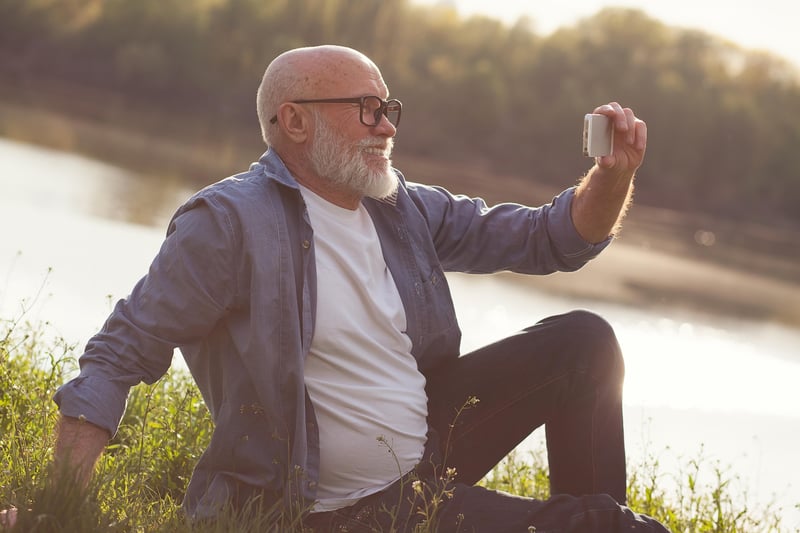Get Healthy!

- Posted April 27, 2023
Why People Love Selfies: It's Not About Vanity
Selfie shots might seem shallow but they're actually serving a deeper psychological purpose, a new study suggests.
So-called "third-person" photos -- shots taken to include the photographer, such as selfies or group shots -- are better at depicting the deeper meaning of an event in a person's life, by showing them actively participating in that moment, according to researchers.
On the other hand, "first-person" photos -- the photographer's eye view of a scene -- best represent the physical experience of an event, the authors explained.
These results counter the view that people post selfies on sites like Instagram just to promote themselves, said study co-author Lisa Libby, professor of psychology at Ohio State University.
"These photos with you in it can document the bigger meaning of a moment,"Libby said in a university news release. "It doesn't have to be vanity."
Previous studies have suggested that two important motivations for taking photos could be to either capture the physical experience of an event or portray the event's broader meaning.
Researchers provided two examples involving a trip to the beach. A photo of the ocean would capture the physical experience of a beautiful day, but a selfie with a friend would capture time spent with a loved one.
The researchers teased out these differences in a series of six studies involving just over 2,100 participants.
In one online study, participants read a scenario in which they might want to take a photo, such as spending the day at a beach with a close friend.
Results showed that the higher participants rated the meaning of the event to them, the more likely they would take a photo with themselves in it.
Another study asked people to examine photos they posted to their Instagram accounts, to figure out the intuition people use to decide the perspective of their pics.
Participants opened their most recent post featuring their own photo and were asked whether the pic made them think more about the physical experience or the bigger meaning of the moment.
If the photo featured the participant in the shot, they were more likely to say the photo made them think of the bigger meaning of the moment, researchers found. Photos featuring the scene from their own visual perspective made them think of the physical experience.
The researchers also found that people don't like photos as much if the snap doesn't capture their intended goal.
In another experiment, participants again opened their most recent Instagram post featuring one of their photos.
Researchers asked whether they were trying to capture the bigger meaning or the physical experience of the moment, and then asked them to rate how they felt about the photo.
"We found that people didn't like their photo as much if there was a mismatch between the photo perspective and their goal in taking the photo,"Libby said.
For example, if their goal was to capture the meaning of the moment, they liked the photo more if they were included in the image, researchers said.
Overall, the results suggest that people have an intuition about what perspective to use in their photos, said lead author Zachary Niese, a doctoral graduate of Ohio State who is now a postdoctoral scholar at the University of Tübingen in Germany.
The study was published April 27 in the journal Social Psychological and Personality Science.
"I hope this study increases people's knowledge about how photo perspective affects how they react to photos,"Niese said in the release. "That way, they can make sure they consciously choose the perspective that will meet their goal."
The results also suggest people may be posting photos on Instagram and elsewhere for more than just their audience, he said.
"This work suggests people also have very personal motives for taking photos," Niese added. "Even on social media, it appears that people are curating images for themselves to look back on to capture the experience or the meaning of the event."
More information
The American Psychological Association has more about the potentially harmful effects of Instagram.
SOURCE: Ohio State University, news release, April 27, 2023






